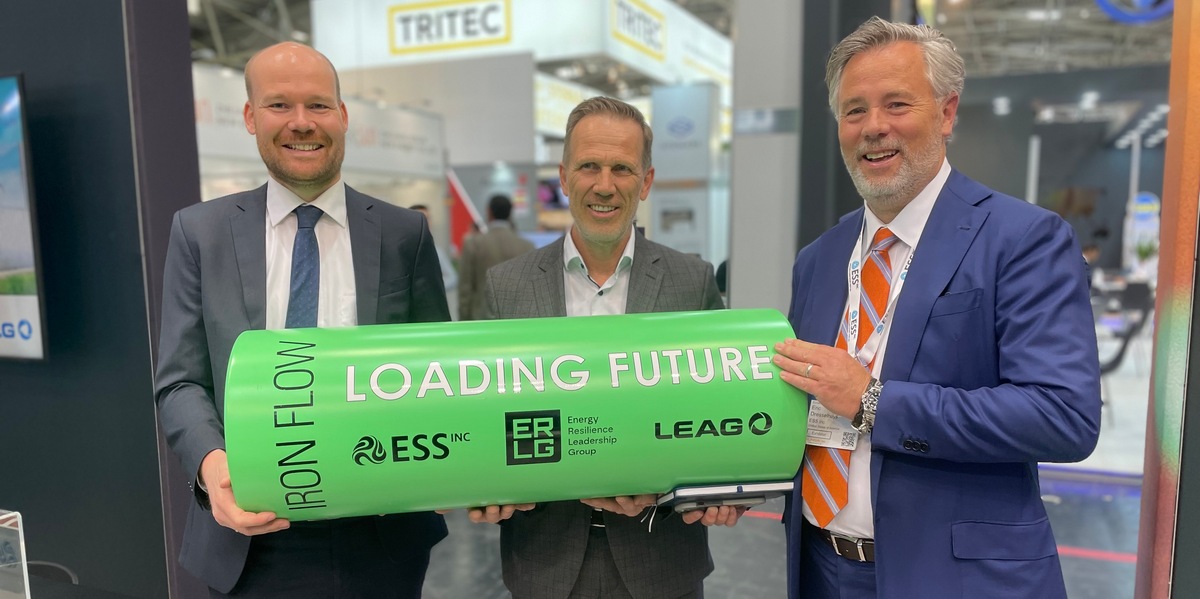LEAG is looking to build a major renewable energy hub in a bid to replace baseload power currently provided by lignite-fired coal generation plants operating in southeastern Germany, near the Polish border.
The hub will comprise up to 14 GW of solar and wind energy generation paired with 2 GWh to 3 GWh of battery energy storage, as well as 2 GW of green hydrogen production.
The first large-scale project was announced this week at Intersolar Europe in Munich. The coal miner signed an agreement with NYSE-listed battery specialist ESS to build a 50 MW/500 MWh battery system to help replace the 2.5 MW Boxberg coal-fired power station in Saxony, eastern Germany.
It will be commissioned in 2027 at a cost of €200 million ($218.9 million). The initial investment will come from LEAG and partners with potential subsidies at a later stage.
“A key requirement for our transformation into Germany’s Green Powerhouse is the deployment of cost-effective long-duration energy storage,” said LEAG CEO Thorsten Kramer.
In addition to long-duration BESS, LEAG will also install short-duration lithium-ion batteries on site. The company, a leading operator of large-scale lignite mining and coal-fired generation in eastern Germany, expects to demonstrate a renewable energy system at scale to replace baseload coal generation, while using battery storage and hydrogen to replace natural gas for grid balancing.
Popular content
“If you want to replace natural gas, you need to have long-duration storage,” Aland Greenshields, director of Europe at ESS, told pv magazine.
Greenshields stated that the company's current operations include an 80 MW fully automated manufacturing line near Portland, Oregon. The opportunity for significant deals would enable them to expand their operations. Greenshields identified the primary challenge as increasing the pace of scaling up.
ESS has developed a battery technology that uses abundant materials like iron, salt, and water, resulting in batteries that are safe, cost-effective, and environmentally friendly. It claims that these iron-flow batteries do not deteriorate with usage and are resistant to the formation of dendrites, which are needle-like filaments that can lead to battery malfunctions and lithium-ion fires.
ESS systems have already been deployed in commercial microgrid systems, with utility-scale projects now underway in the United States and Australia. The definitive agreements and financial close for the 50 MW system at the Boxberg Power Plant site are anticipated in the third quarter of this year, with commissioning expected in 2027.
LEAG and ESS have joined the Energy Resilience Leadership Group (ERLG), a multi-stakeholder initiative led by Bill Gates-backed Breakthrough Energy and Siemens Energy. The group was launched at the 2023 Munich Security Conference to enhance Europe’s energy resilience.
This content is protected by copyright and may not be reused. If you want to cooperate with us and would like to reuse some of our content, please contact: editors@pv-magazine.com.



So they will use two unreliable and intermittent sources, one expensive backup hydrogen system, one expensive and only very short duration battery, and will still need 100% backup from a reliable baseload source. In other words, all the new stuff can’t replace the good old stuff and thus adds to the system cost while reducing reliability. Good plan… Not!